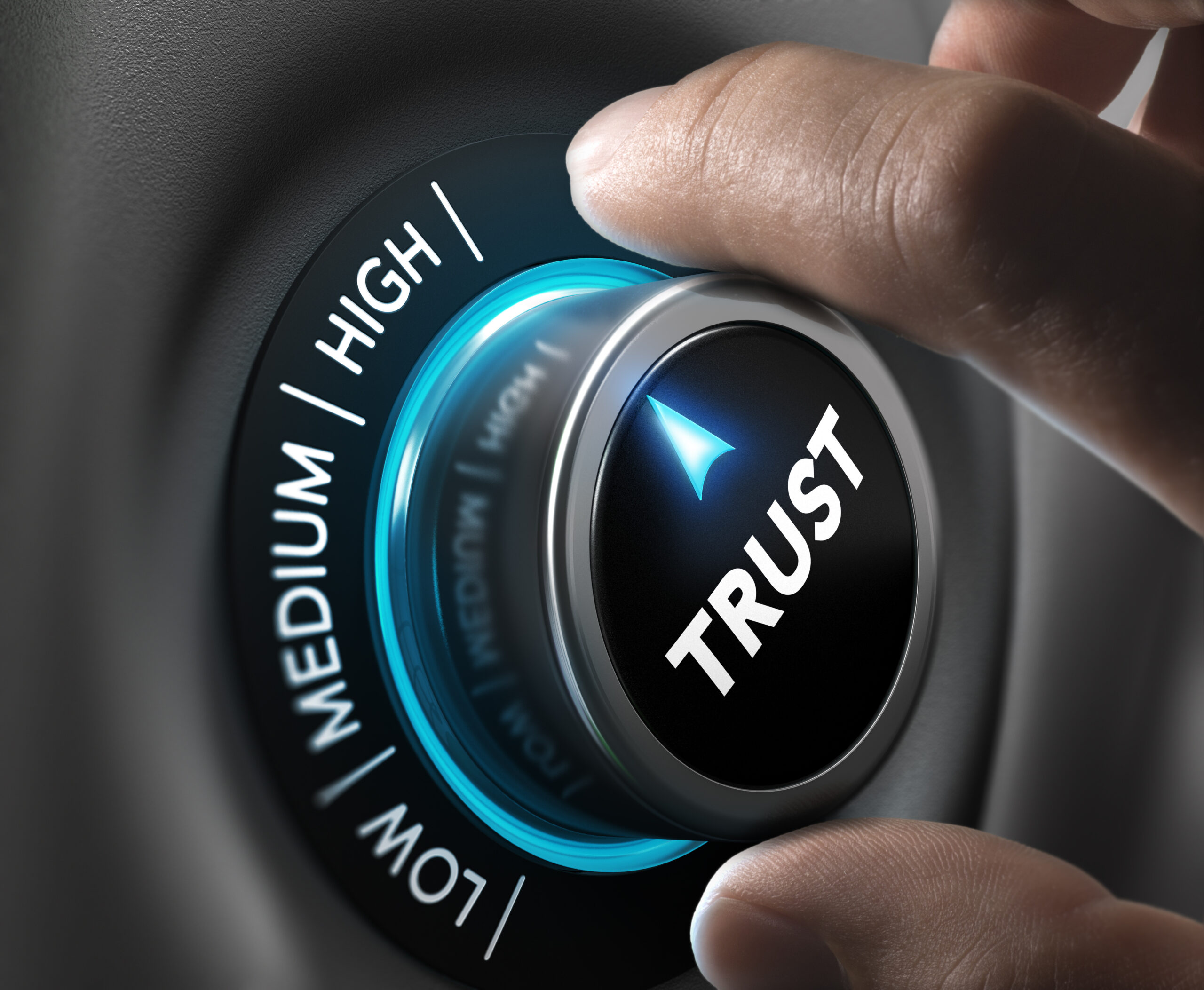Your Reputation Matters: Restoring Donors’ Trust in Your Organization (Part 4 of 4)
I was talking with a business colleague and asked him if he knew Ralph [not his real name]. “You know,” I said. “That guy who used to work at [name...
4 min read
Richard Perry and Jeff Schreifels : Updated on April 30, 2025

So far, on this journey of earning donor trust, we have talked about how trust starts with you, then moves to your key relationships within the organization, and from there out to your donors. You can now see how all of this is connected and why it is so important to get things right.
And now that you have built trust in the organization, it is time to build trust with your donors. Let me get into this topic by telling you a personal story.
I had a situation in once where a person I trusted threw me under the bus. I was surprised, and then hurt. Surprised that a relationship that had been in place for over a decade meant so little to this person that they would toss it aside to gain political advantage. Hurt that the actual gain in political advantage was hardly worth the damage done.
Then while I was licking my wounds on that event, and solely focused on “poor me,” I remembered the times that I had done this very thing to other people in my life – i.e., traded a personal advantage for relationship. As I pondered those events, I felt ashamed. And then I was able to convert my recent experience into a positive reminder that goes something like this: “Richard, when you are tempted to use your above average influencing skills to gain personal advantage and, in the process, hurt someone else, remember what it feels like and don’t do it!”
It’s so interesting how delicate a thing trust is in relationships. And in the relationships you have with the donors on your caseload, this trust thing is very critical if you are to be a person of integrity in those relationships, but also if you are to be successful in nurturing and managing those relationships to a mutually beneficial end.
Stephen Covey’s book on trust, The SPEED of Trust: The One Thing That Changes Everything, is the basis for this series on trust in donor relationships. In it, Covey identifies thirteen behaviors of relational trust that I want to explore here for your donor relationships. These are things you must do to build trust. Here’s that list:
Stephen advises us to “communicate clearly so that you cannot be misunderstood. Declare your intent. Be honest and call things what they are. Don’t distort facts. Avoid counterfeit behaviors such as withholding information, flattery, and spin.” Whew, this one hit me like a ton of bricks. I really have to watch how I spin things. You just cannot do this with donors. They know what is going on, believe me.
This is not only about showing real respect that comes from your heart. It’s also about avoiding “fake respect or concern…. showing respect and concern for only those who can do something for you.”
“Be real and genuine and tell the truth in a way people can verify.”
This may be a hard one. But it is important, and I have seen it done in incredible ways in a non-profit. In fact, we have one client where the seven-figure gift of a donor was not used as represented to the donor. The MGO, with management support, made it right, and it was a big deal.
This is about treating the donor as a partner versus just a source of cash and being mutual and loyal in your relationship to the donor. This may be hard to do in some organizations especially those that treat the donor like an ATM. “Why should we worry,” they would say, “about the donor and what they need or want? Just get the money!”
A very real part of developing trust is to deliver what you promised. And building trust with your manager is evidenced by delivering results that you promised to him or her. There is nothing that breaks up trust more than saying you will do something and then not doing it.
As donors (and others in your relational sphere) see you personally getting better at what you do, and desiring to get better, it will build trust between you.
Most of us, at some level, avoid conflict. Something bad pops up and we hide to some degree or another. This hiding causes trust to break down. On the other hand, when you are faced with a difficult situation, and you just confront it and move to repair the situation, it builds trust. I remember when an MGO discovered a $100,000 check from a donor that had gone astray. It was lost. Don’t ask me how that happened – I still can’t believe it. But it was lost. The MGO confronted reality right away, talked to the donor and things were worked out.
I’ve seen this one go south a number of times between a donor and an MGO or the organization. The donor thinks one thing, the MGO thinks another. I suggest you go over any agreements and arrangements several times with the donor verbally and then also put it in writing just to make sure.
There is nothing quite like admitting it was your fault (if it was) when something goes wrong. I had a situation last week where I had to admit to someone that I was the one that screwed things up – it was no one else’s fault, just me. A donor appreciates that kind of openness and ownership.
In all your conversations with donors, have an intention to listen first, before you follow your agenda. I have to work at this. Being the planner that I am, I always have an objective for every phone call, email, or meeting. Since I am that way, I must, as an act of my will, start a dialogue with listening. It is difficult sometimes, but it must be done.
Do as you said you would do. Period.
If you give trust, you will get it. Conversely, if you don’t trust, it will not come back to you. This is a simple concept and truth that is very difficult to do, I know.
There you have it. A solid list of ideas on building trust in your donor relationships. I think you can already see how valuable these actions and attitudes are for managing the donors on your caseload. Building trust like this can positively affect the economic journey you are on with every donor. While the money is an important metric to measure your success in your job, don’t forget that building trust with your donor – real trust – is the path to that money.
Richard

I was talking with a business colleague and asked him if he knew Ralph [not his real name]. “You know,” I said. “That guy who used to work at [name...

This is Part 1 of a series on building trust: “No Trust, No Relationship, No Money.” Trust is the core building block of all relationships. Yet many...

Your hands ache from writing “We couldn’t do this work without you,” on hundreds of cards. The papercuts on your fingertips sting as you shovel...